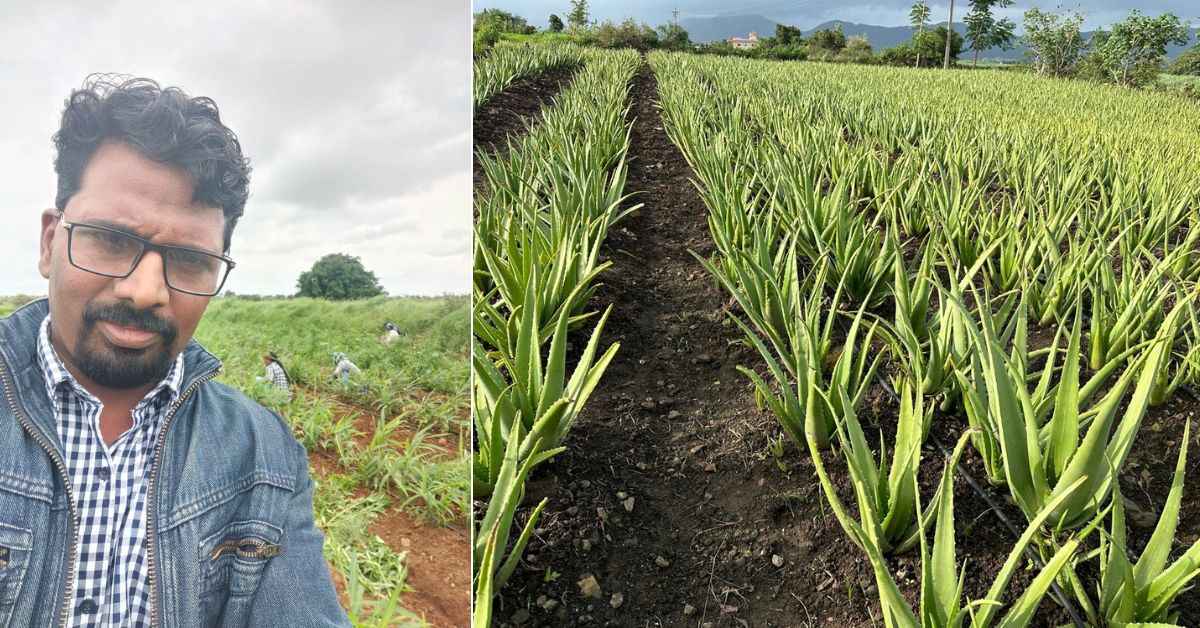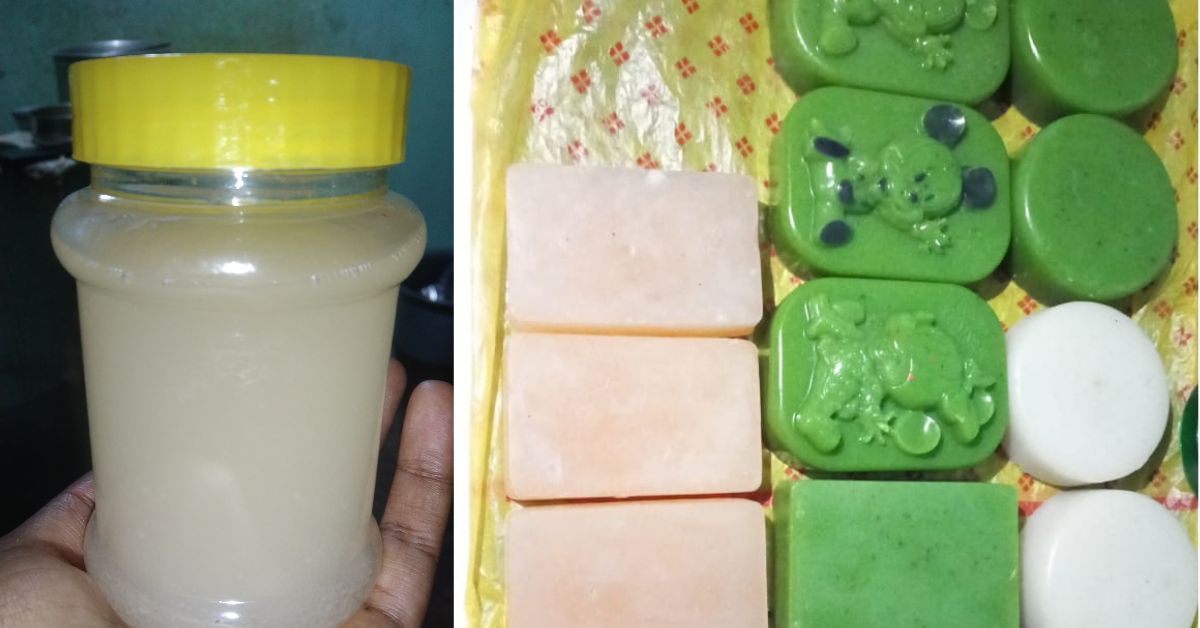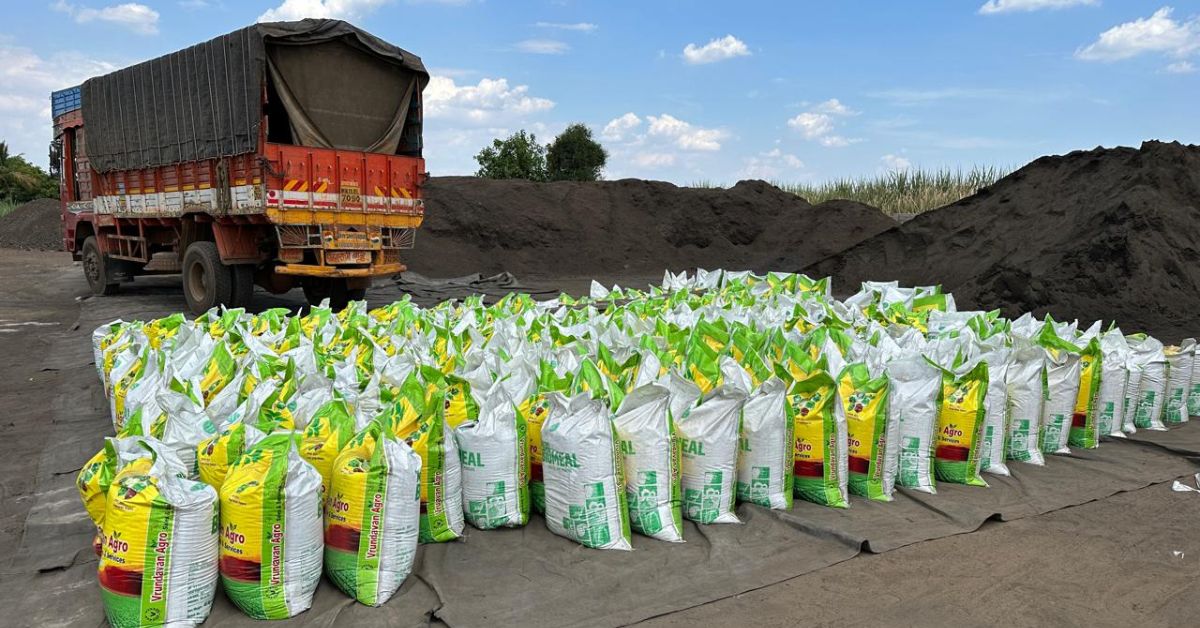In the drought-prone Satara district of Maharashtra, farmers were largely dependent on rain for irrigation. Often without any regular irrigation facilities, they would be forced to leave their crops at the mercy of nature.
Nearly two decades back, farmers in Padali village were fooled into taking up aloe vera farming by claiming the crop would ensure good yield in the rainfed region.
“A businessman had come to our village and advertised about aloe vera farming. He distributed pamphlets wherein farmers had stacks of money on one hand and aloe vera plants on the other. It mentioned ‘Aloe vera lagaiye aur lakho kamaiye’ (grow aloe vera and earn in lakhs),” recalls farmer Hrushikesh Jayasing Dhane (44).
Influenced by this, several farmers bought thousands of plants and planted them on their barren lands imagining themselves as the man in the advertisement. “I was curious about the crop, but I also had doubts about it. So I went to the office and enquired about the market. I asked to be told about 10 such farmers who earned lakhs from aloe vera. The local officials got angry and threw me out of the office,” he adds.
Once the harvesting period came in, Hrushikesh says, the businessman had run away. “It was all a fraud. I saw farmers crying. They did not have any strategy to market the crop, so they started clearing their fields and some threw them on roads,” he shares. Interestingly, Hrushikesh picked the discarded aloe vera plants and planted them in his field.
This decision took him on a path which led him to establishing, what is today, a multi-crore company!

Life in the drought-prone village
Raised in a humble family of farmers, Hrushikesh owned eight acres of land in Padali village. The family had traditionally been growing crops like paddy, pearl millet, sorghum, and wheat. Despite toiling hard on the field, they would not get sufficient output.
“We were entirely dependent on rainwater for irrigation, as the nearest river was four kilometres away, and we lacked the necessary machinery for lift irrigation. Consequently, our crops often dried up. Despite having a good amount of land, it remained barren for much of the year,” he adds.
The family of four was dependent on their father’s monthly salary of Rs 2,000 and lived in a small kachha (mud) home. Such was the financial status of the family that they survived on low-quality sorghum chapatis (flatbread), and occasionally, vegetables.
Until Class 10, Hrushikesh never wore a pair of slippers. At 20, to supplement his family income and support his higher education, he started working for a marketing company.
“As part of my job, I would receive Rs 3,500 a month if I met the target of promoting Rs 1 lakh in sales. This income was not fixed, and they required me to relocate 25 km away. I attempted to do this work for three to four months, but it became unsustainable because I also had to manage my field responsibilities,” he adds.

In a bid to run a business from the village, he started a nursery by selling moringa and mango saplings. However, this business would peak only during the monsoon. Gradually, he started selling fertilisers to farmers.
But a turning point came into his life in 2007 when farmers were throwing aloe vera plants away.
Turned adversity into opportunity
Hrushikesh planted 4,000 discarded aloe vera plants between mango and amla (Indian gooseberry) trees. “I thought there was no harm in growing aloe vera on my farm, even if it didn’t generate immediate income. I knew that aloe vera could work wonders as a termite repellent and would help protect my mango trees,” says the graduate, who holds a bachelor’s degree in horticulture.
During offline exhibitions organised in Satara, he often came across small entrepreneurs selling aloe vera products. “Inspired by the idea, I started preparing products like soaps, shampoos, and aloe vera juice. But this did not bring me good profits,” he adds.
Using his expertise in horticulture, he went on to utilise aloe vera to make natural pesticides, herbal spreader, and plant growth promoter. “Insect thrips damage the buds and leaves of crops. I once mixed aloe vera with fish oil and sprayed it on crops. Pests and animals dislike it because of its bitter taste. I found this to be an effective pest repellent,” he shares.

He continues, “Plants like bananas naturally avert water on its surface. It becomes difficult for farmers to spray pesticides on their leaves. Spraying aloe vera spreader helps spread pesticide throughout the length of the plant.”
In 2013, Hrushikesh started commercialising these products with the help of the friends he made from marketing jobs. Today, he manufactures an average of 8,000 litres of products from his aloe vera farm, now expanded to two acres of land. With this, he has been able to clock an annual turnover of Rs 3.5 crore, of which, his profit margin is 30 percent.
But this feat did not come easy to Hrushikesh. Initially, his decision to plant aloe vera on the field was greatly opposed by his in-laws. His wife Madhura tells The Better India, “We were newly married then, and I did not have much idea about the crop. My parents were against this decision. They believed aloe vera could bring us misery as the plant has thorns.”
“However, my husband proved them wrong. Now, my parents often take aloe vera from our field to apply on their hair and drink its juice,” she smiles.
Looking back at his success, Hrushikesh says, “When I started planting aloe vera, I was told that if you plant thorny plants, it will bring bad luck. Back then, I lived in a kachha house, but today, I have built a two-storey home in my village and we travel in a Fortuner car! All this became possible only because of growing aloe vera.”
“However, farmers should not be swayed solely by potential earnings. It’s important to understand that significant profits from aloe vera farming are more likely if we focus on producing products and expanding the operation accordingly,” he adds.
Edited by Pranita Bhat; All photos: Hrushikesh Dhane.
No comments:
Post a Comment